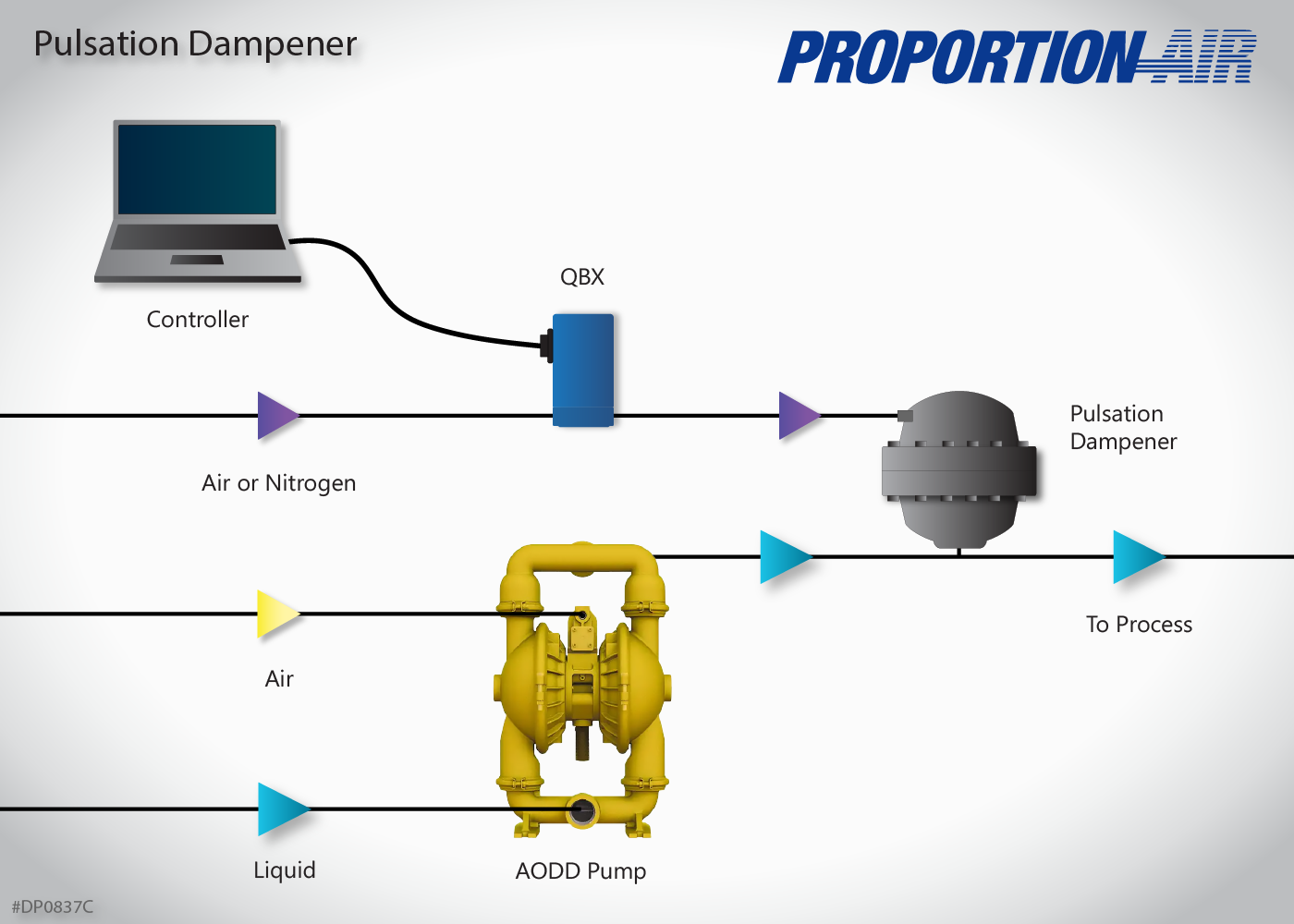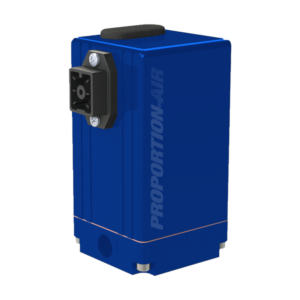
A pulsation dampener can be put downstream of an AODD pump to reduce pressure peaks. These useful devices can yield smooth, consistent discharge flows to better protect welds, piping and plumbing components from damage caused by surges.
Pulsation dampeners have two chambers, one with compressed air or nitrogen and one with the liquid being moved. When a pulsation occurs in the liquid, the pressure is greater in that chamber than in the air chamber. A diaphragm between the two chambers adjusts to the pressure change and absorbs the pulsations. As the diaphragm adjusts, a center rod moves to allow more air into the air chamber through an inlet.
If pressure in the liquid chamber decreases, pressure in the air chamber moves the diaphragm downward, which shifts the shaft location and valve position. This then releases excess pressure from the air chamber, and the diaphragm returns to a neutral position. Surges and pulsations are reduced with this method.
In this drawing, a QBX regulates the pressure to the pulsation dampener. Adding an electro-pneumatic regulator to the air inlet on the pulsation dampener can more accurately control the dampener’s performance. This provides an extra layer of defense against damaging pressure surges. The regulator maintains a specified pressure based on the needs of the application, limiting the effect of peaks, whether constant or intermittent.
Products used in this application:
-

QBX Industrial Electronic Pressure Regulator
$576.00 Select options This product has multiple variants. The options may be chosen on the product page
